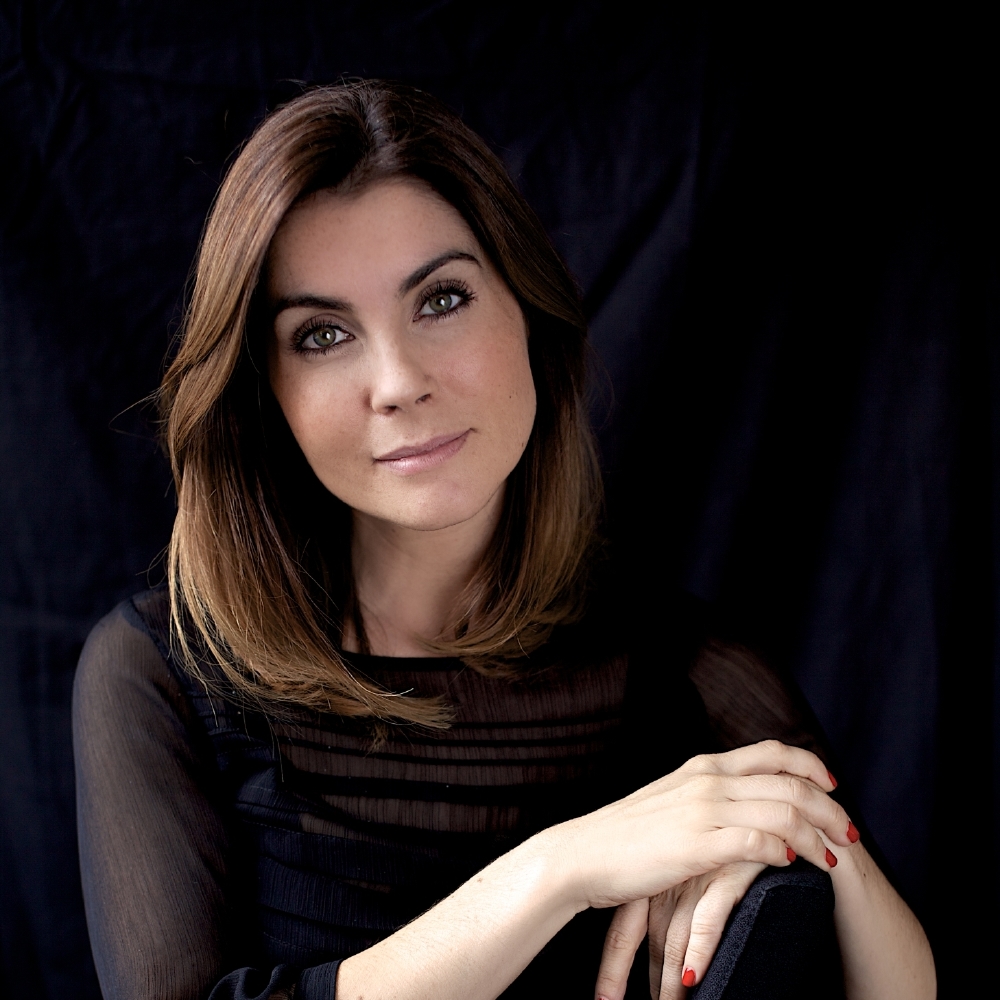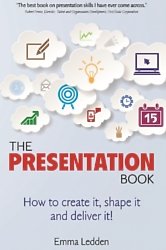
Emma Ledden

Presenting is a vital skill for any professional woman. You need to present your ideas and lead your team daily, you may have to present at a conference to build your profile or very importantly you may have to present to get promoted.
The good news is presenting is a skill that can be acquired by anyone. The Presentation Book gives you the tools and knowledge to build that skill with confidence. The book is about empowering people to be their best when they have to deliver a presentation in any situation.
Why is it important to plan and prepare properly?
The no 1 thing everyone I meet wants when they present is confidence. The only way to feel confident when you present is to prepare properly. If you are fully prepared, yes you will still get nervous as nerves are normal, but those nerves will not overwhelm you because you are prepared. I have never seen a presentation fail because of nerves. Every day I see presentations fail because of a lack of proper preparation. Preparation is vital. Fail to prepare, prepare to fail.
Can you give us an example of a successful presenter and one of their secrets!
One of my favourite speakers is a woman by the name of Brene Brown who did one of the most successful TED talks ever entitled “ The Power of Vulnerability”
She is an academic, a researcher and was talking about her research, so basically she was talking about raw data.
But that’s the thing, she didn’t talk about raw data, she made the data real. She used everyday language, told stories and used examples. She did not read data impersonally from a slide she made the data real. That is the secret to great presenting.
Why is presentation about understanding what your audience needs?
Most people when they prepare presentations just prepare slides. They don’t really think about the audience properly until it’s too late.
They find themselves live in front of the audience and suddenly they realise their content may not be relevant or the main point for this particular audience is at the end of the presentation when it should be at the start but it’s too late to change it.
The most important thing in a presentation is to engage people and get them to listen. To do that you must understand who they are and why they would or should listen to you.
Every audience member at every presentation is thinking. Why should I listen and what’s in it for me? You need to answer that question for your audience and also tailor your presentation to meet their needs.
Why should your message be broken down into three key points?
A great presentation should be structured like a great story. It should have a beginning, middle and an end. The presentation should flow and make sense and link together like a story would.
Also the rule of three is a rule in speaking, in writing, and in music, that states that concepts or ideas presented in threes are inherently more interesting, more enjoyable, and more memorable.
How can the design of the slides affect your audience reaction?
The design of your slides is vital as you don’t want your slides to be a distraction. Most people prepare slides as a crutch for themselves or as their own notes and this is where it goes wrong.
The slides are not for the presenter they are for the audience. It is vital you prepare your messages first and then design your slides after.
You do not want your audience to be reading a slide while you are talking. Ever.
Why do people feel nervous about presentations?
Presenting is a situation where you are talking to a group of people, maybe your peers or superiors, they are all staring at you and you don’t want to make a fool of yourself.
The big fear for everyone is that you will embarrass yourself and it is this fear that makes you feel nervous. It is normal, in my experience it never fully goes away and I think that is a good thing because it means you care. Nerves are not necessarily nice but they are manageable with preparation and experience.
Please can you tell us a bit about your background?
I started my TV career straight out of school. I worked for the BBC and MTV. Having done youth TV for 8 years I was at a stage where I wanted to develop something behind the camera for myself. I had always been interested in the work of a communications consultant in business. This would have been my career choice had the TV break not come for me.
My TV experience proved invaluable to me as I carved out a new career. Media is the business of communication, presenting and performance.
The media is a business where the goal of every TV and radio show, every newspaper and every social media site is about getting an audience’s attention and keeping it. I think this is the biggest insight, benefit and understanding I got from my time on TV. You must get and keep an audience’s attention. To do that you must think how they think and give them what you need. You must give them a really positive experience.
This is the approach I teach in the presentation Book. I help people to profile their audience before they present so they can engage and connect with them when they deliver their presentation.
What is next for you?
I think 2014 is going to be the year of the presentation book for me. I am going on a book tour and will be doing lots of talks around the UK and I am also opening my London office in January 2014 so I am very excited about that.

